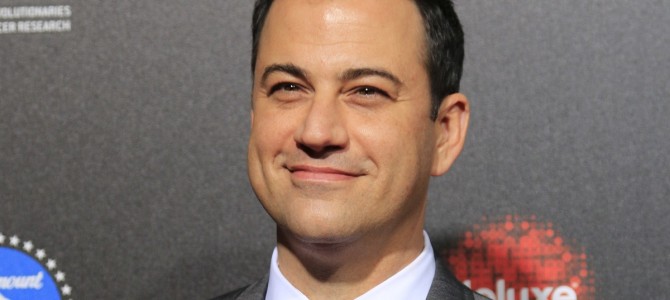
Between laughs and fluffy, getting-to-know-you questions this past Wednesday, late-night host Jimmy Kimmel challenged presidential candidate Ted Cruz on his articulated policy of “patrolling” Muslim neighborhoods in response to the recent terror attacks in Brussels.
During the talk, Kimmel pushed back against the candidate, arguing:
Don’t you feel that human nature is such that if people who are Americans in a Muslim community – who you might make an argument are more upset about what their brothers in religion are doing – if they feel they’re being singled out and they feel like the police are keeping a special eye on them, that that is going to make them anti-American and then we’ll have an even bigger problem because we won’t have to import terrorism; we’ll be creating them here.
The audience, predictably, burst out in riotous applause, as Kimmel’s assertion reflects the prevailing sentiment of the Left. But as an American and a Muslim, I’m deeply frustrated by the Hollywood host’s statement, which green-lights two very dangerous myths.
Many Muslims Want Terrorist Sects Monitored
Myth 1: “Keeping a special eye on” Muslim communities in response to increased Islamic terrorism will make Muslim-Americans “anti-American.”
While blanket surveillance has proven to be largely ineffective unless it is targeted based on viable intelligence, there are plenty of tangible leads in Muslim communities that—for reasons of simple political correctness—are being ignored. In some cases, law enforcement or intelligence officials face bureaucratic retaliation for pursuing these leads.
Yet there are plenty of them, beginning with the network of Islamist-controlled mosques, Islamic centers, and Muslim organizations that have troubling and documented ties to Islamists like the Muslim Brotherhood and its Palestinian offshoot, the terrorist group Hamas. Both the American people and our government broadly agree that, at least, individuals and entities linked to State Department-designated terrorist groups are dangerous—just the kind of thing a responsible government would be “keeping a special eye on.”
In addition, what’s more genuinely “anti-American” than being an Islamist or supporting a genocidal terrorist group? Apologists like Kimmel may mean well, but their argument leads one to believe the most authentically “Muslim” one can be is a sharia-supporting Grand Mufti or a Hamas sympathizer. Needless to say, this is just what Islamist groups in this country want.
Islamists rely on Western tolerance to accommodate all these things no matter how devastating their practice is to the Western culture of individual freedom. It happens when popular media personalities don’t distinguish between hard-core Islamists and secular Muslims; when publications repeatedly pair stories about Muslims with images of gender-apartheid-suffering hijabis; and when the media praises Islamist efforts to promote the most sharia-adherent and extreme Muslim “identity” but doesn’t challenge the theology.
The Soft Bigotry of Low Expectations
Myth 2: Anti-Americanism triggers homegrown radicalization.
If opposing a government policy leads to increased homegrown terror, then we have a telling problem: the belief that Muslim Americans can be activated to terror for no other reason than a vague sense of perceived oppression.
If “radicalization” occurs that easily, as Kimmel and the audience seem to assume, even liberals believe there is something innately hostile about the Islamic faith. That may seem like a stretch, but when the Left paints Muslims with such broad strokes—implying we’re all just a one offense away from raising our pitchforks in domestic jihad—they reinforce the stereotype of the aggressive Muslim. More than reinforce it, they excuse it.
The question is, how does this “soft bigotry of low expectations” get missed—especially when the American Right is demonized for caricaturizing Muslims?
ISIS Fighters Aren’t the Only Radicals
As a Muslim who has grown up across three continents and in four cultures, I have the unique perspective of both insider and outsider—and essentially outlier. I’ve predicted an American society completely blind-sided by itself. Isolationists at heart, most Americans see radical Islam as a problem central to the Middle East, occasionally splattering onto the West. This sort of categorical approach to the world has made it easy for militant Islam to dominate the headlines while letting graver and more sinuous threats at home go relatively unnoticed because, frankly, there isn’t the expectation of a threat in any other form.
The problem with the national dialogue, as we see from the Kimmel-Cruz exchange, is that, while there is a hyper focus on kinetic terrorism, that focus is an inch deep. American discourse also takes place in a sequestered environment of privilege, comfort, and relative unawareness of an outside world, especially of how the outside world sees it.
Islam sees itself as essentially superior to Judaism and Christianity. It sees an Eastern history in competition with Western history, running parallel up until our recent and inevitable clash of civilizations. That sense of superiority and divine infallibility has obliterated free thought in the Islamic faith, retarded reform efforts that should have been secured centuries prior, and given rise to both militant and political Islam.
So while ISIS has captured the American imagination, we’ve left the back door wide open for Islamist activity, unable to recognize the diplomatic branch of radical Islam as essentially another form of the same threat. The Left’s fear that Muslim-Americans will be radicalized if challenged isn’t just outlandish, it’s dismissive of the fact that these types of Muslims are already politically and culturally radical.
The Islamist agenda isn’t just politically driven, it’s also culturally driven parasite that relies on its host for survival. Last week, host Jimmy Kimmel and his over-exuberant audience did a fantastic job of scoring a win for radical Islam.









